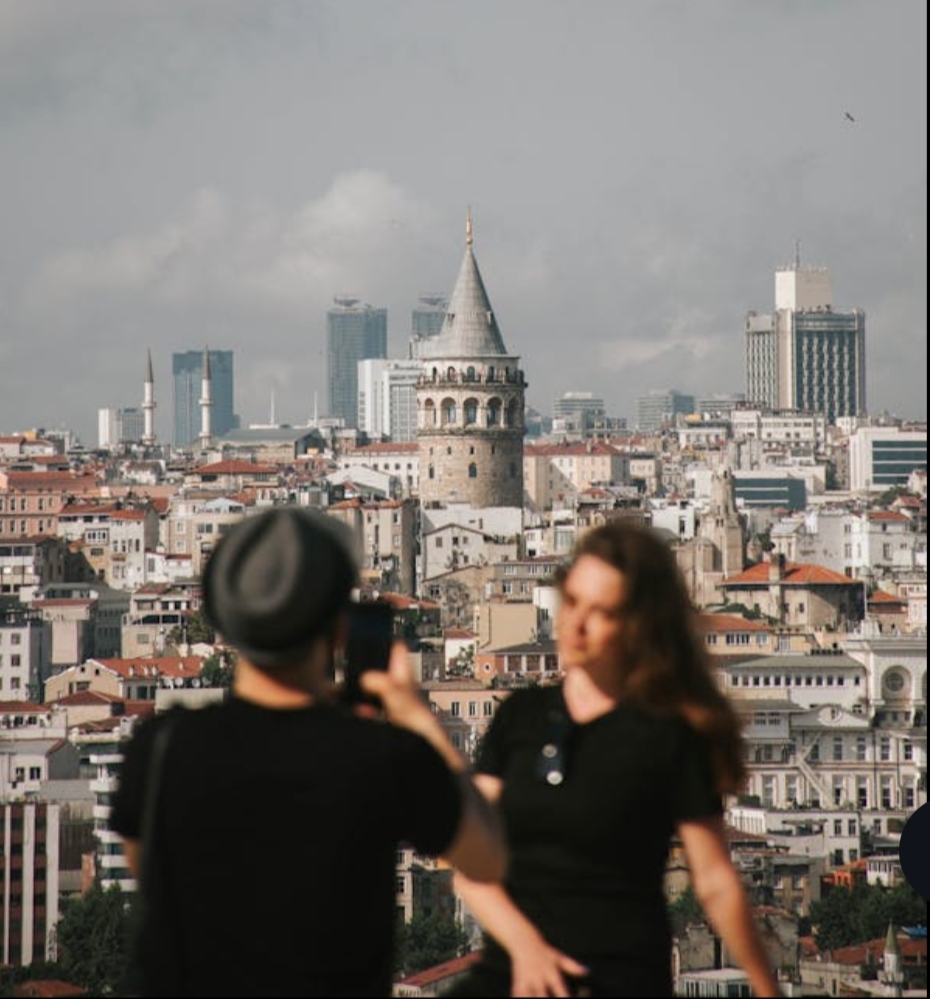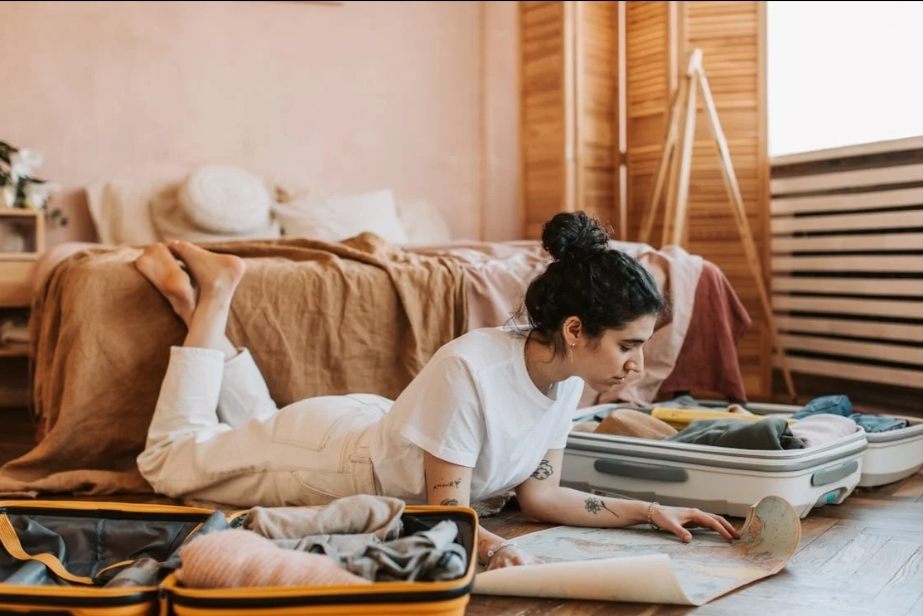Let’s start by defining educational travel.
Educational travel encompasses a variety of experiences. It could involve studying abroad or within your own country. As a traveler, you might take an intensive course in a language or a specific subject like archaeology. You journey to places where your subject of interest is an integral part of the culture. For instance, you might study art history in France or learn cooking in Italy, making the experience much more immersive than a traditional classroom setting. Educational travel can also include taking a single-day class on a particular topic to develop new skills and knowledge.
Who are educational travelers? Educational travelers are driven by curiosity. They seek more than just iconic sights like the Eiffel Tower. They want to delve into the stories behind such landmarks—learning about the people who built them, the reasons for their construction, and the technical challenges overcome during their creation. For example, they might take a history course in Paris or join a tour with expert guides who offer in-depth lectures and answer questions on-site. These travelers aim to understand the social, economic, and cultural context behind what they see, gaining a comprehensive understanding beyond a typical tour guide’s brief.
Where do educational travelers go? They go wherever their interests lead them. Spanish can be learned in Spain or South America. Volunteer opportunities are available at archaeological sites worldwide. You can find cooking classes for every cuisine, with the best ones located in their place of origin. Educational travelers seek destinations where their learning is enhanced by being immersed in the subject’s context.
How much time is needed for educational travel? The duration can vary. Learning a new language might require a few months, while a week might suffice for a thorough introduction to a particular culinary style.
Why is educational travel popular? For curious travelers, educational travel offers the perfect blend of deepening their understanding of a subject and exploring the world. It combines the depth of classroom or studio learning with the excitement of cultural experiences, making it an enriching way to travel.
Tips for Planning the Perfect Learning Vacation for You
Planning a learning vacation might take a bit more effort, but it’s definitely worth it.
1. Identify Your Inspiration:
What excites you? What do you want to learn? Think about the skill, art form, or academic subject you’ve always wanted to pursue but haven’t yet fully explored. What would be best learned within a specific cultural context? Figuring out your inspiration is the first step, and it’s often the easiest for those eager to learn while traveling.
2. Choose Your Destination:
There are two main ways to go about this:
Select a destination based on what you want to learn:
For example, if you want to learn a language, you might consider hiring an online language tutor who can teach you through video calls. Another option is to find a face-to-face language instructor in your area for in-person lessons. Additionally, you could use language apps to practice on your own whenever you have free time. Each method has its benefits, so you can choose the one that fits your learning style best. If you’re interested in cooking Indian food, consider the regional variations that might guide you to a specific area within India.
Pick what you’ll learn based on the destination you want to visit:
Consider the specialties of your desired location. Do your learning goals align with this dream destination? For instance, if you want to develop your cooking skills and also want to visit Bordeaux, look for a cooking school in the Bordeaux region.
3. Find Specialty Sites for Your Interest:
Are you interested in an archaeological dig? There are lists of volunteer opportunities where you can work alongside archaeologists worldwide. Organizations offer various volunteer opportunities, but keep in mind that these trips come with a cost, just like any travel. You might also explore programs from sites like Roadscholar.org, which cater to boomers and retirees. Alternatively, check directly with universities. For example, Oxford University offers summer programs that might interest you. Websites like Academic Courses can help you find options at hundreds of universities and colleges globally.
4. One-Day Classes vs. Multi-Day Courses:
Finding good international sites for truly educational one-day classes can be challenging. Most platforms, like Viator, offer tours and activities but have limited educational options. Therefore, choose your destination based on what you want to learn, and then dive into Google results to find specific opportunities.
5. Use Discussion Forums for Your Areas of Interest:
If you’re passionate about cooking, visit sites like Chowhound.com, which are organized geographically to help you find the best cooking schools in a particular area. Although I don’t typically recommend TripAdvisor, it can be useful for finding educational opportunities.
6. Connect Locally:
If you’ll be staying at your destination for an extended period, use Meetup.com to find people with similar interests and ask them for class recommendations.
Planning a learning vacation can be a unique and rewarding experience, providing both education and adventure.
Stories about Educational

Here are some of the memorable learning vacations that Tracey and I have embarked on:
Learnings and Landings in the High Arctic:
Our journey to the High Arctic was nothing short of transformative. We delved into the unique ecosystem, learning about the delicate balance of life in this remote region. From studying polar bears and their habitats to understanding the impact of climate change, every day was a lesson in the resilience and beauty of nature. The breathtaking landscapes and the midnight sun added a magical touch to our educational adventure.
Cooking Class and Dinner in Rome:
Rome’s culinary scene is as rich as its history. We immersed ourselves in the art of Italian cooking, learning traditional techniques from a local chef. From making pasta from scratch to crafting the perfect tiramisu, our cooking class was both fun and enlightening. The experience culminated in a delightful dinner, where we savored the fruits of our labor, surrounded by new friends and the vibrant atmosphere of Rome.
How to Chautauqua: Your Guide to a Summer of Learning and Fun:
The Chautauqua Institution offered us a summer filled with intellectual stimulation and cultural enrichment. We attended lectures on a variety of subjects, ranging from history and literature to science and philosophy. The days were punctuated with performances, workshops, and engaging discussions, making it a perfect blend of education and entertainment. This guide will help you navigate your own Chautauqua experience, ensuring a summer well spent.
Solo in Prague: Blurred Borders in a Czech Kitchen:
Exploring Prague alone allowed for deep personal growth and a unique culinary journey. In a local kitchen, I learned to prepare traditional Czech dishes, experiencing the country’s rich culinary heritage firsthand. The classes were intimate, often blurring the lines between teacher and student as we shared stories and recipes. This solo adventure in Prague was not just about cooking; it was about connecting with the culture and people in a meaningful way.
These stories showcase the diverse and enriching experiences that educational travel can offer, turning each trip into a journey of discovery and learning.
